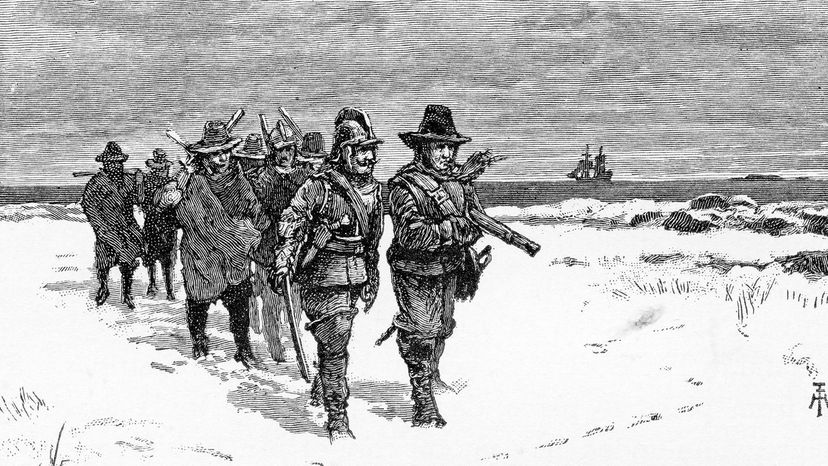
You're on board the Mayflower, kicking back with your fellow Separatists. Over pints of beer, you and the other crew members marvel at the bad luck that's befallen your voyage thus far: One of your ships sprang a leak not long after you left England and by the time everyone had moved to the remaining boat, the sturdy ol' Mayflower, it was well into storm season. Rough seas delayed your journey even more, and some two months later — just as you catch your first glimpse of a new continent — you find that November is the worst time to arrive and begin planting new crops. To make matters worse, your ship actually needs to keep sailing south because the bit of land you've spied isn't even the tract your group is authorized to colonize.
It has not been a good year, 1620. And it's about to get worse.
Advertisement
You catch wind of news so terrible it makes you shiver in your breeches. The ship's stores of beer have dwindled. You, sir, are running out of the good stuff. Shortly thereafter, the captain makes a quick decision: Latitude be damned! It's time to dock this ship and canvas new land. The passengers and servants can seek out new water (hopefully to make more beer). Meanwhile, the crew will remain on the moored vessel, reserving the remaining beer for themselves.
It may sound difficult to believe, but this fractured history lesson — prompted by those aboard the Mayflower who recorded their experiences — is rooted in truth. With the beer supply running low, the Mayflower captain decided to land at Plymouth Rock (rather than sailing further south) and winter there. That would cut off the supply to the passengers and leave more for the crew. Beer, it seems, is America's founding beverage. So much so that one passenger, William Bradford, complained that he and other passengers "were hastened ashore and made to drink water, that the seamen might have the more beer." And even though the pilgrims discovered clean streams ashore, they were suspicious of the New World liquid and not altogether fond of its taste. As one colonist was quick to write, "I dare not prefere it before good beere" [source: Chapelle]. It seems the long voyage that made beer consumption a necessity would have a long-term effect, one that would give pilgrims quite a penchant for good brew.
Turns out, to those aboard the Mayflower, beer had become an essential part of daily life. Even the children drank beer, although it was probably a weaker version of what we experience as beer today. "Ship's beer" as it was known, did not have high alcohol content. Neither did the even weaker "small beer," of which passengers drank a quart per day.
The brews weren't necessarily crafted with an eye toward imbibing alcohol; they were actually a workaround to storing water on board the ship. Stored for long periods of time, a ship's water would become a contaminated, germy affair. Beer, on the other hand, could be stored and ingested for weeks and months without ill effect, making it the ideal beverage for a lengthy journe — as long as there was enough to go around [source: Grimm].
Advertisement